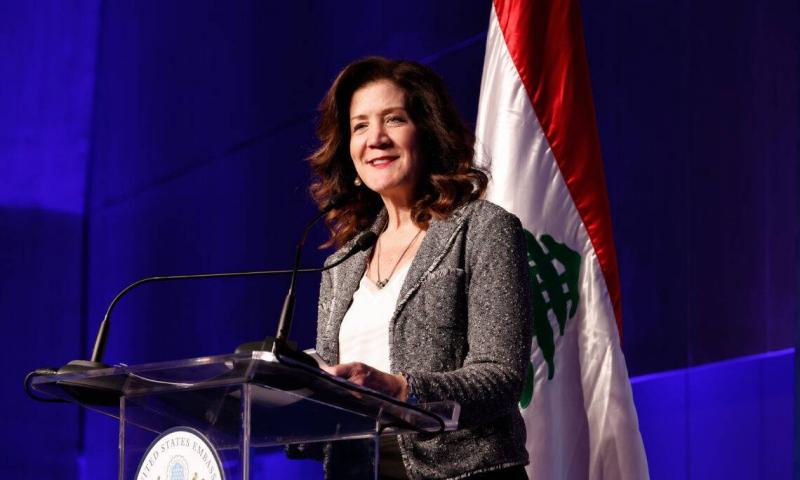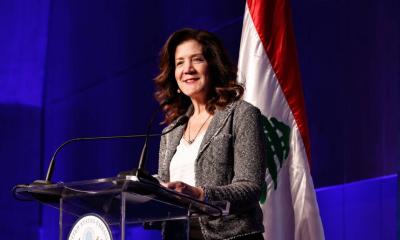The American ambassador to Lebanon, Dorothy Shia, confirmed that it is possible to "eradicate the diesel mafia through support initiatives," especially those undertaken by the U.S. Agency for International Development (USAID), including the launch of the "Renewable and Solar Energy Fund." This fund, launched by USAID through the Trade and Investment Facilitation project (TIF) and the Lebanon Investment Initiative (LII), will provide investment sources for the private sector, enabling Lebanese companies to finance the installation of solar panels.
During the ceremony held at the Ministry of Energy, Ambassador Shia noted that "USAID contributed $4 million to the initial capital of the solar and renewable energy fund, and we are working to secure an additional $16 million from private sector investors and other donors." She continued: "Through your investments and the expertise of USAID, we can assist local companies in reducing their operating costs to maintain their operations and employment levels."
She highlighted that this fund will support the purchase and installation of solar power generation systems for at least 25 companies. She expected that these companies would reduce their operating costs by at least 20%, which would decrease their electricity expenses, thereby enhancing productivity and protecting Lebanese jobs.
Shia expressed confidence that Lebanese companies and investors would seize this opportunity to benefit from the fund, support the sustainability of Lebanese businesses, and protect Lebanese jobs. She reminded that this is not the first response from the U.S. government to the energy crisis in Lebanon, nor will it be the last: "Since 2012, the U.S. government, through USAID, has been providing affordable, reliable renewable backup electricity to homes and businesses. In fact, we recently launched the $30 million INARA project to provide reliable and safe renewable electricity. During her visit here last November, USAID Administrator Samantha Power announced 22 new renewable energy projects across Lebanon."
She warned that reliance on diesel generators and the government's intermittent power supply affects financial resources, productivity, and competitiveness. She concluded: "To compensate for rising energy costs, the U.S. government, through USAID, has established a $20 million solar and renewable energy fund to finance the purchase and installation of solar energy systems. The fund will lend capital to companies at commercial rates, with loans expected to be repaid within two to three years, which will be achievable through savings from reduced reliance on diesel generators. So who wants to eliminate the diesel mafia? Can we do it? Yes!"
Mark Rustal, the TIF project director, emphasized that "this fund is a first step to stimulate investment in clean and sustainable energy in Lebanon. We hope this initiative attracts more investments in renewable energy in the country, thereby supporting the recovery and growth of Lebanese companies that have suffered for years from shutdowns and layoffs due to this crisis."




